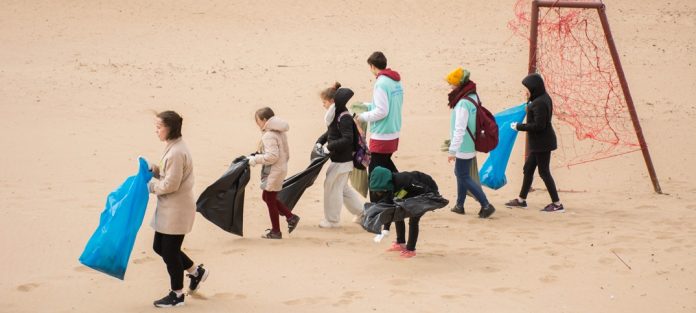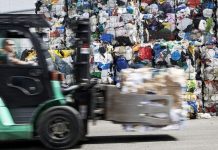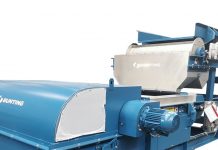Clean Games Baltic Cup unites them in a volunteer cleanup competition from 18th to 26th of September.
For three years now Baltic countries have gotten together to participate in the Clean Games Baltic Cup which has been held annually on the World Cleanup Day. The difference from an ordinary cleanup is that participants from different Baltic cities compete in waste collecting and sorting and earn game points for the amount of garbage collected.
This year competitions are going to be held in 10 countries. Poland, Latvia, Finland, Denmark, Estonia, Lithuania, Sweden, Belarus, Ukraine, and Russia are going to compete. The Clean Games Baltic Cup tournaments in Russia are going to be held during the Nordic Weeks festival in Saint-Petersburg. The tournament is implemented in partnership with environmental organizations Clean Baltic Coalition and Latvian Green Movement.
“This tournament became a tradition for us. This will be our third Baltic Clean Cup,” says the Clean Games chairman Dmitry Ioffe. “We are very glad to see that people from so many places want to participate and even bring their friends and families as their teammates. It is thrilling to see that people actually care about the issue.”
“It was a little bit of a wake-up”
This August Clean Games representatives took part in the Regeneration Week summit held by Regeneration 2030, which took place in Aland Islands. The summit was aimed at building a successful dialogue between youth and older generations (politicians, businessmen) about the environment, climate, and circular economy.
Clean Games also managed to hold a cleanup competition there. Alfons Roblom, the Minister of Development, responsible for Environment, Energy, and Housing Issues on Aland Islands played the game as well and was left surprised by the results: “I haven’t imagined that Mariehamn [a city in Aland Islands] has so much litter. It was very surprising to see the total amount of waste that we have collected during the game. So that was a little bit of a wake-up.”
“We also discovered that usually cleanups in Europe gather small groups of people, 10-15 average according to activists participating in Regeneration Week. Some of our Baltic Cup organizers are planning to have 50 and even 100 participants in their cities. That’s because we usually involve not only activists but also the local communities. It’s their behavior affecting the amount of litter around, it’s their behaviour we address with our game format,” says Anton Zaitsev, Clean Games communication manager.
Clean Games have been conducting international tournaments since 2019 when the first Clean Games Baltic Cup became an annual September tradition. In 2020 seven countries took part in the second Baltic Cup, and in 2021 new records are expected. In 2020 Clean Games also extended the hand of cooperation to the USA, and 20 cities from both countries were cleaned simultaneously during an intercontinental tournament.
Information on the Clean Games project
Clean Games are team competitions in waste collecting and sorting. During games players use our mobile app – just like Pokemon Go. Since 2014 more than 1500 games have taken place in 24 countries. From 30 to 1500 people take part in one game and collect from 0.5 to 20 tons for an hour. On average a player collects 5-10 times more waste during Clean Games than during traditional cleanups.
Source: Clean Games project







